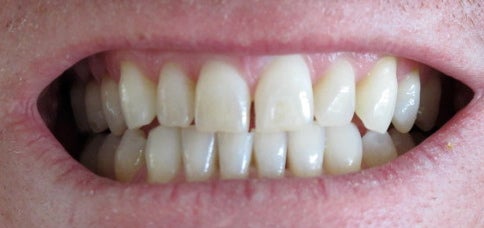
Bruxism is characterized by much push the teeth or jaws and make noise with the teeth and molars. In the majority of cases it occurs during the nights and it can cause many problems and headaches, to broken teeth and injuries. In this article, you will learn techniques for not clenching.
What to know about bruxism?
As we said before, bruxism is when a person much tightening the upper teeth against the lower, either when it makes them grinding rubbing them and slide them up and down against each other. It is a bad habit or tic, like biting the lips or eat nails. It's an act of unconscious and involuntary, i.e. we don't we account except when someone makes it us notice or hurt us.It is very likely that who suffers from bruxism experiment it with more emphasis during the night, while you sleep. In the morning you will feel pain in the jaw or gums and even there may be cases where people with teeth broken by friction and pressure.
What are the most frequent causes of bruxism? They are different and all of them have to do with emotions and psychological aspects. They are:
Stress
The person accumulates a large amount of stress for several days, weeks or even months. Then, you must release somehow. In this case, grinding the teeth or much pressing jaws.Anxiety

At certain times in life such as wedding, the birth of a child, a moving trip of the couple... In other words, when we are eager for something to happen, is more likely to liberate tensions gritting his teeth together.
Control of emotions
If the person is introverted, has problems at home, they have taught her to not say what feels or thinks, is under a lot of pressure, can not talk openly with your family or should be checked much to say what happens, can suffer bruxism night.Mental exhaustion
In times of examinations at the University, balance sheets in firms or long flow of intellectual and mental work as well as also many activities during the day, they tend to increase the cases of bruxism.What are the consequences of grinding your teeth?
- Pain of toothache when the pressure is very strong.
- Pain in the neck or neck because when tightening the teeth tension expands and posture is inadequate.
- Temporomandibular joint problems, what causes earaches in turn.
- Wear of the teeth and molars, making them weak and sensitive, causing caries, fall of teeth, gingivitis, etc.
- Pain or swelling of the jaw.
- Insomnia by pain in the area of the mouth or the achieved stress level.
How to treat bruxism?

It eliminates the pressures
First, it is necessary to relieve the tension accumulated in a healthier way. Stress and nerves have to be removed before going to sleep. Emotional control is also very important. Then, seeks how to remove everything that weighs you, makes you ill or depresses you. You can be playing sports, leaving to do overtime or terminating a subject in the University. Everything for your health.On the other hand, if the problem is emotional to save all the feelings, it is good that you begin to tell you what happens. The relief can be front of the mirror with a friend or a psychologist. The important thing is to let it flow. Perhaps talking about the subject, you find a solution that had not thought of you before. Not keep silence if not required. Be sure that the words are flowed through your throat, because after you pay the price.
Do exercise

This is a great way to release tension and eliminate the stress that can lead to teeth grinding or tighten the jaw while you sleep. Some people suggest that the best way is with the sports of high intensity such as boxing, kickboxing, spinning, or the marathon. Others will choose disciplines calmer as the yoga, the pilates or swimming. If you don't have much free time, at least, salt to walk a little every day, danced in your House or climbing the stairs instead of the elevator. You will feel more relaxed and not padecerás more from bruxism.
It reduces the intake of certain foods
Depending on what you eat, you can feel more or less stressed and anxious. The following foods are not good for your health, especially if you are very upset and have bruxism:- Refined sugar
- Soft drinks
- Fried foods
- Fast food
- Coffee
- Chocolate
- Vinegar
- Canned juices
- Sodas
Drink teas that you reassure

You can drink at any time of the day but, above all, an hour or two before bedtime. The most relaxing herbs are:
- Passionflower
- Anise
- Peppermint
- Chamomile
- Orange Blossom



0 comentarios:
Post a Comment